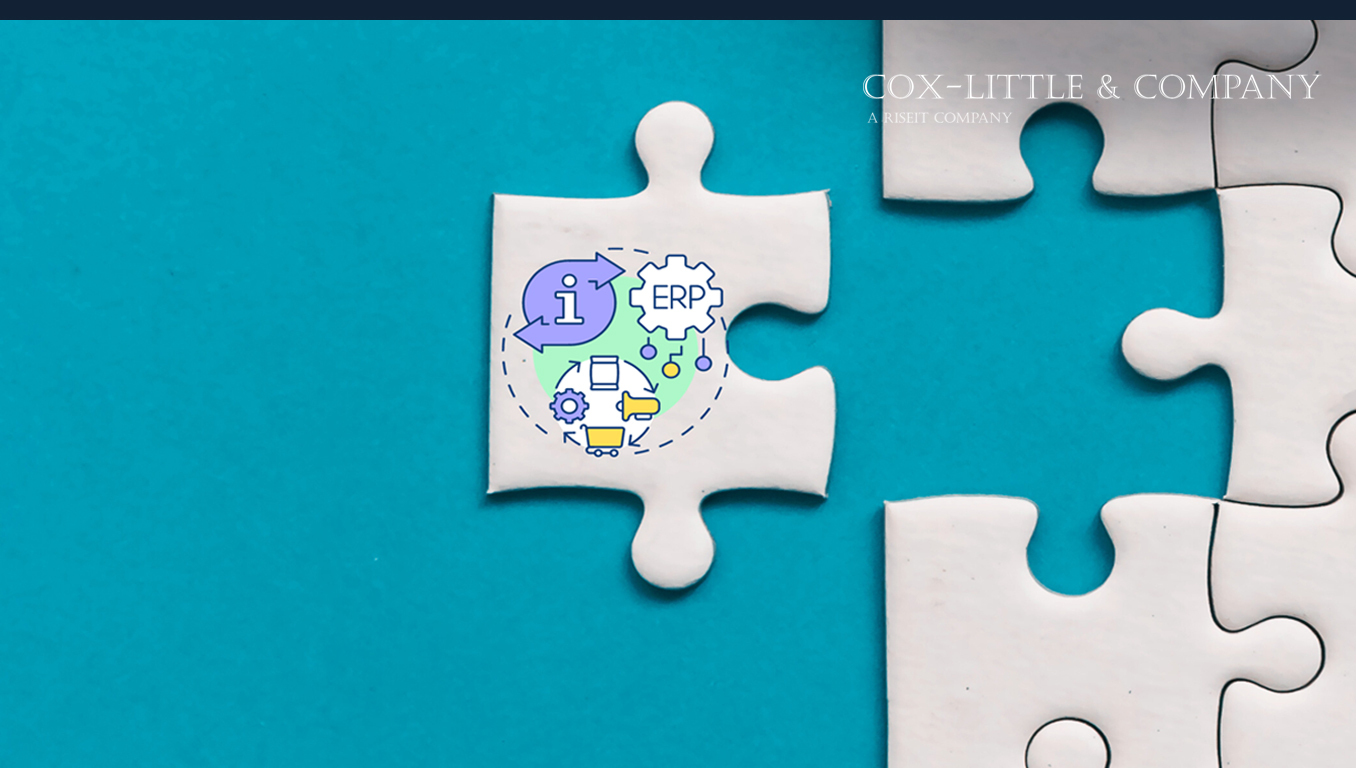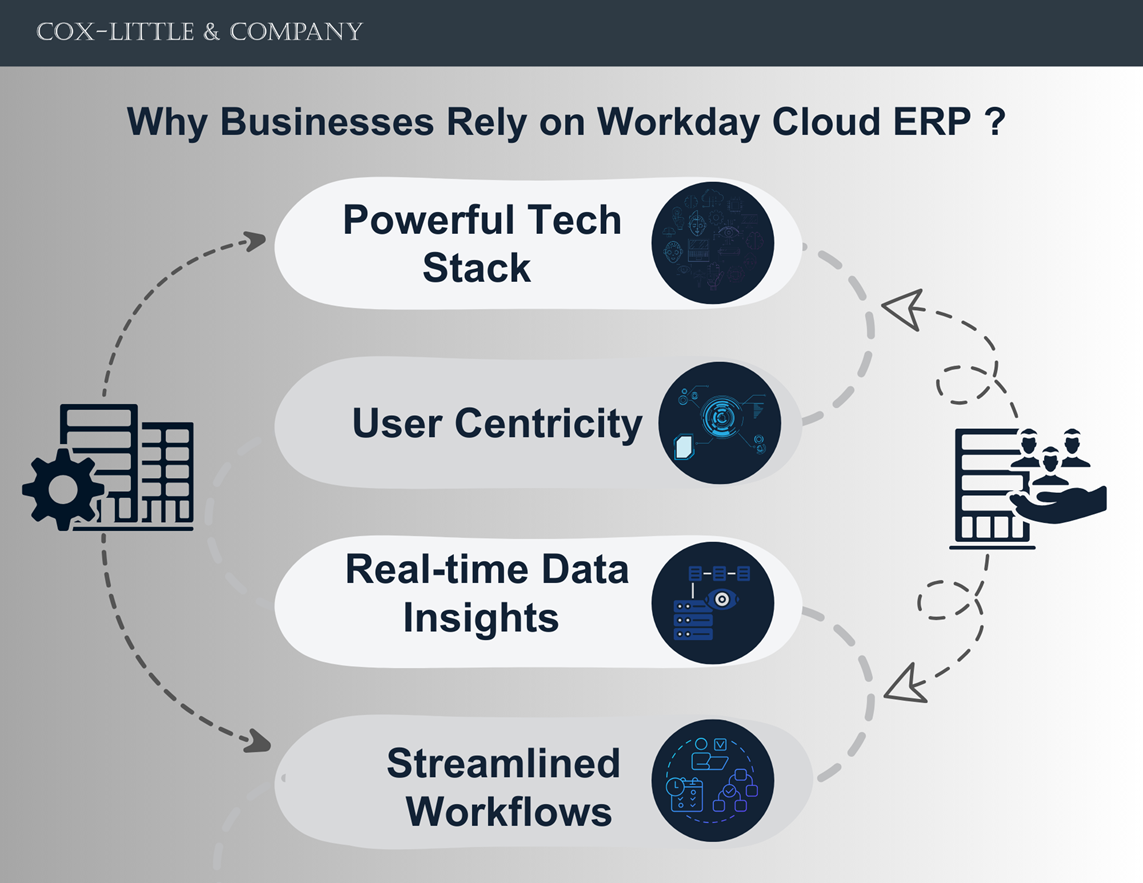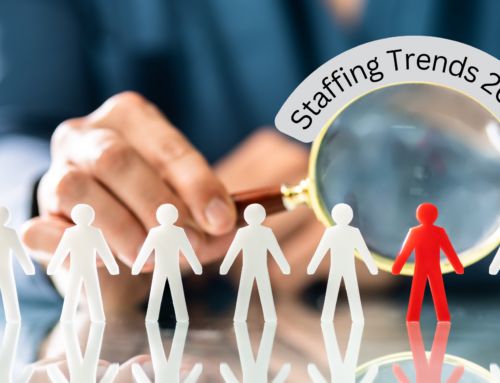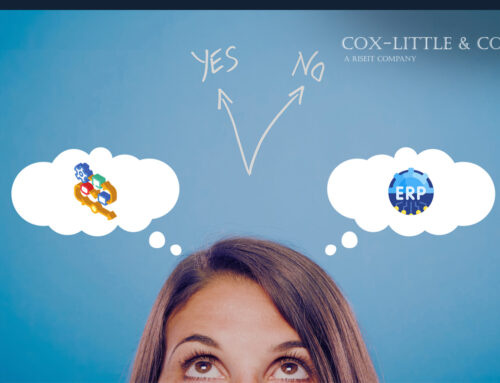
Recently, Workday was recognized as one of the leaders of Cloud ERP by the 2023 Gartner Magic Quadrant for service-centric enterprises. This popular cloud-based Human Capital Management and Financial Management software provider caters to a variety of customers of all sizes, operations, and units to manage human resources, finance, data analysis, time tracking, and more. In this blog, we will go into the intrinsic aspects behind Workday’s industry leadership and recognition nearly six times in a row!
Reintroducing Workday Cloud ERP’s Industry Leadership
According to Gartner, Workday had the highest market share with 21% in 2022 for worldwide ERP SaaS revenue. Another data insight suggests that in the HCM category alone, Workday claims 26.33% of the market share, finds research. In 2022, the worldwide revenue of Workday totaled over $5 billion.
In 2023, within the category for cloud ERP for service-centric enterprises, Workday Enterprise Management Cloud was recognized as the leader. For the past six years, Workday consistently ranked top of the Gartner Magic Quadrant for Cloud HCM Suites for 1000+ employee enterprises. Workday was also mentioned in 2022 as the inaugural Gartner Magic Quadrant for Financial Planning software. This year, Workday Enterprise Management Cloud recaptures attention, attributing its authority as a cloud-centric platform with adaptable architecture to drive agility and integration across service-centric organizations for better management of their money and people. Leveraging powerful AI and ML capabilities, Workday Enterprise Management Cloud is a step above ERP to empower users to swiftly adapt to changes and move with speed and intelligence.
The platform’s primary goal is to intelligently augment business and financial teams through automation of processes and workflows. In summary, the Enterprise Management Cloud is built to help its customers derive maximum value across data, processes, and people.
An ERP or Non-ERP: The Middle Ground for Workday Cloud ERP
Workday is nearly two decades old and was founded by former PeopleSoft executives. It was later acquired by Oracle. The company’s SaaS-based financial, human resources, and industry-specific platforms stands apart for its unprecedented adaptability, user-friendliness, and quick implementation features when compared to legacy on-prem business applications.
Workday processes over 365 billion annual transactions and serves over a million hourly requests across the globe. Almost 50% of Fortune 500 companies are users of Workday and 90% of these users are live in production. The company also has 10K+ customers across 175 countries. However, there is some ambiguity around identifying Workday as a pure-play enterprise resource planning (ERP) provider.
The most instinctual reasoning is that Workday lacks typical ERP capabilities such as distribution, manufacturing, customer relationship management, supply chain management, and important functional modules as well as standard data processes and models. Its flagship Workday Human Capital Management (HCM) and Workday Financial Management with the Workday Finance ERP module are its core defining suite in the ERP industry. Through its expansion with the acquisition of analytics, AI and ML, and other businesses, Workday consistently retained its competitive edge over other ERP systems.
During the recent pandemic, pressures of digitization peaked among users of ERP (both on-prem and cloud-based) to upgrade their systems in order to aid remote operations. The limitations of conventional ERP systems such as disparate data and rigid data mechanisms, lack of remote accessibility, integration gaps, and expensive upgrades stretched the need for systems like Workday. The cloud-based application software readily encapsulates most of the capabilities that are available in most ERP systems. Workday’s cloud-native architecture, intelligent data core, strong integration capability, and flexibility helps businesses redefine their business processes and adopt necessary automation. Moreover, its capability to merge finance and HR systems into a unified robust interface and in-built analytics connects all necessary facets to finance and HR driving data-driven decisions.
To conclude, Workday may not offer the composition capabilities of basic on-prem and cloud ERP built from the ground up. However, the Gartner-recognized Workday Human Capital Management and Workday Financial Management are competitive offerings that are comparable to multi-tenant SaaS offerings from market-leading ERP software vendors. Moreover, the purely cloud-based offering will help businesses reduce operating costs and unlock new opportunities amid dynamic market and business situations. Below we have elaborated on the foundational aspect of Workday’s intelligent data core that guarantees its users four major benefits such as:

- Powerful Tech Stack: Workday’s underlying tech stack boasts of strong security, distributed computing, high-performant browser-based visualization engine, powerful ML models, and state-of-the-art data preparation and data visualization systems. The RESTful API architecture, metadata-driven UI combined with creative design, collaboration technology (Worksheets), and language-agnostic tool kits to build, test, and maintain scalable software.
- User Centricity: Rather than focusing all attention on rigid software delivery processes, Workday’s original architecture provides all the flexibility to adapt the software as per the organizations’ requirements, customer base, and regulatory changes without impacting users. For example, employees, managers, and talent recruitment teams can access data through their devices including their mobile devices with its pre-built integration catalog. The Cloud Connect for third-party business applications and tools simplifies departments such as payroll, accounting, and finance to integrate and access data in those systems. For a better user experience, Workday’s conversational UI helps them seamlessly collaborate and interact with the platform. The overall objective is to justify Workday’s philosophy of ‘bringing people to the center of the enterprise software’ and not the other way around!
Another addition to Workday Human Capital Management’s intuitive experience is the Workday Peakon Employee Voice, a productivity tracker to listen to and engage employees and analyze action and feedback using advanced AI.
- Real-time Data Insights: A big chunk of the Workday innovation is allowing users access to a 360-degree view of their business leveraging the platform’s Workday Prism Analytics. It helps connect and blend transactional and high-volume data from non-Workday systems to generate core insights in real time. The underlying Spark and Hadoop technologies process terabytes of data and the interactive reporting, dashboards, and data discovery engines help businesses scale as per their data and user volumes. Further, self-service access to data, the ability to build data transformation pipelines, and manage data security frameworks, helps relevant stakeholders have control over the data to facilitate analysis and insightful decision-making.
- Streamlined Workflows: Workday Financial Management’s embedded AI and ML capabilities include computer vision, natural language processing (NLP), anomaly detection, recommendations, as well as time series for forecast analysis. It helps identify risky and unusual activities while making recommendations for actions on the same system. Also, the Workday Spend Management automates procurement processes using ML-models to manage off-contract spend and worker inefficiencies. Intelligent task automation enables businesses to streamline processes and prioritize analysis and action.
How Workday Cloud ERP Surpasses Customer Expectations?
To understand why most organizations in the financial services, retail, energy and resources, education, communications, and healthcare industries choose Workday’s cloud-based product suite, let’s examine the below pointers:
- Delivery at Speed and Scale: Businesses can achieve agility that helps them deliver at speed and scale with an architecture that they already own without undergoing sudden disruptions or drastic changes that require investment for IT hardware, software licenses, and onboarding of new talent.
- High Extensibility and Interoperability: Businesses can make do with the existing technology environments and architectures. This benefit extends to a wide range of users across industries, and they can readily leverage Workday’s low or no-code technology without worrying about security constraints to tweak the platform to be more interoperable with existing systems and applications.
- Single, Trusted Source of Truth: With ERP platforms, businesses achieve unified sources of truth, Workday helps users go a step higher, achieving a single but reliable source of data. They can access data insights at a deep, granular level to measure and track profitability and performance. Using timely and accurate data insights, leaders across finance, human resources, and operations can execute decisions with confidence!
- Meaningful Workflows: Organizations clocking in endless repetitive, manual work can replace it with Workday’s AI and ML-embedded core processes. It helps intelligently transform mundane work handled by employees like manual entries by empowering them with meaningful work and taking over tasks from correction to touchless processing.
- Workforce Optimization: To make employees or people truly valuable for the business, Workday cloud-based HRIS helps manage all HR-related activities and tasks from a single system. It helps elevate all important aspects of HR such as employee experience, engagement, and people analytics. With a comprehensive insight into workforce skills and performance, Workday helps HR teams understand talent gaps, skill requirements, and current as well as future opportunities for redeployment.
A notable detail about Workday Human Capital Management and Workday Financial Management is its 97% customer satisfaction (CSAT) ratings as per Workday’s latest survey reports. Also, the Gartner® Peer Insights™ based on verified customer ratings and peer reviews, and positive customer feedback from renowned users in banking, financial services, and insurance (BSFI) and retail industry.
The customer feedback revolved around Workday’s system configurability and new feature additions that help users scale and evolve easily. The responsive customer service and support was also highlighted by a customer in the finance industry who reportedly felt that Workday has one of the strongest and most active communities.
Another review submitted by a customer from the retail industry reads, “We ultimately chose Workday not just for their culture and partnership, but for the ability to tie the financials and people together in one place to take ERP/HCM from back office to an operational toolset. Workday empowers our front-line managers to take action on their own. “We ultimately chose Workday not just for their culture and partnership, but for the ability to tie the financials and people together in one place to take ERP/HCM from back office to an operational toolset.”
Workday as an HRIS
Human Resources Information Systems or HRIS are synonymous with an HR database hosting all details and aspects of the HR functions in a single system that gathers and distributes data across other departments. HRIS dispenses human resources data like employee details, contact information, demographic, job status, benefits, compensation, and more. It helps speed up routine HR workflows, enabling HR managers to focus on their employee recruitment, appraisal, and other activities. HRIS also offers a holistic view of the talent resources, budgets, skills, and other data to help compare and derive actionable data for strategic decisions. A comprehensive HRIS guarantees the above-mentioned capabilities as well as providing an exclusive focus on combining all HR functions into a single system while slashing operations costs and time. In simple terms, Workday encapsulates all these capabilities with its cloud-based, feature-rich Human Capital Management platform.
The Workday HCM also includes human resource management (HRM), employee experience, recruitment, workforce management, benefits management, time tracking, and absence management.
A look into the market for HR technology reveals fierce competition against the backdrop of industry disruptions. Businesses need a watertight strategy while approaching HR applications and systems as well as their long-term implications. The role of HR leaders is integral to co-creating business strategy while keeping a watch on the workforce, their growth prospects, and management costs. Moreover, the workforce or the leaders rarely have a holistic idea about the type of HR data that is collected and used optimally as a strategic asset. According to Deloitte’s 2023 Global Human Capital Trends report, about 83% of business leaders consider worker data important for organizational success. However, only 19% of them are capable of fully leveraging their worker data. When asked about the barriers to value-realization, these respondents cited organization culture as the reason preventing unlocking value and benefits from worker data.
With Workday HCM suite and Workday HCM experience businesses of all sizes can rest assured with the ability to fully tap their data for competitive advantage and adapt to evolving expectations in the business and regulatory sense. Workday complete suite across workforce planning, reporting, and people analytics along with the Workday Human Capital Management (HCM), speed up decision making. It helps leaders be more proactive and intentional about the workforce with actions and decisions powered by superior AI and ML capabilities.
Get Started with Workday: We Can Help You!
From strategizing businesses’ Workday Cloud ERP implementation journey to selecting and integrating relevant modules, Cox-Little & Company’s Workday consultant resources give you the know-how to get started. Our carefully handpicked Workday resources can join your internal teams to make your business’ investment on Workday, Workday HCM modules, and Workday Finance ERP as useful as possible for improved people decisions for long-term outcomes. Contact Cox-Little’s team to discuss how we can help your ERP projects off the ground!





